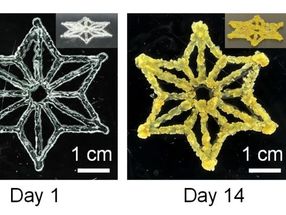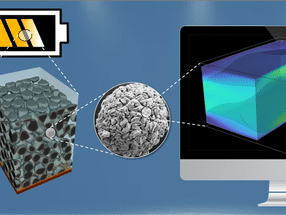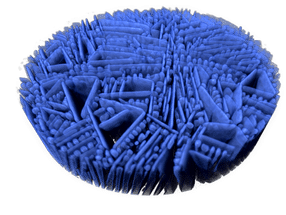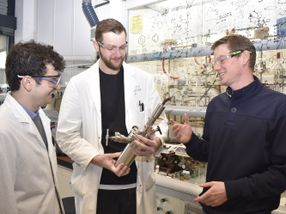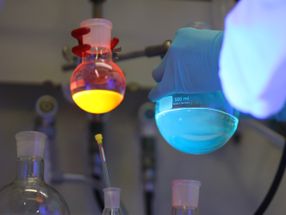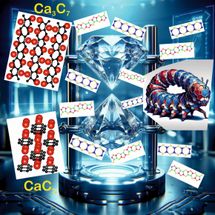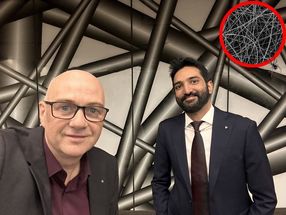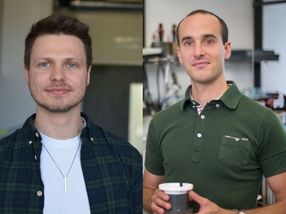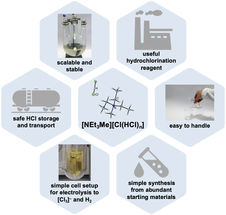SGI Servers Power New College Consortium for Chemical Computation
Servers Are Among the Most Powerful Available to Chemistry Investigators At Undergraduate Institutions Today
12-Jul-2002
MOUNTAIN VIEW, Calif., July 11, 2002 - A National Science Foundation (NSF) grant has enabled Hamilton College in Clinton, N.Y., to buy one 32-processor and one 8-processor SGI(R) Origin(R) 300 server as the foundation for a new supercomputing consortium devoted to computational chemistry. The servers, purchased late last year as the first of a planned series of SGI(R) computing hardware components, are among the most powerful now available to any chemistry investigators at today's undergraduate institutions.
The Molecular education and Research Consortium in Undergraduate computational chemistry, or mercury, is based at Hamilton College and also consists of faculty at the following Northeastern liberal arts institutions, all of which offer undergraduate research programs in computational chemistry: Colgate University, Hamilton, N.Y.; Connecticut College, New London, Conn.; College of the Holy Cross, Worcester, Mass.; Hobart and William Smith Colleges, Geneva, N.Y.; St. Lawrence University, Canton, N.Y.; and Vassar College, Poughkeepsie, N.Y.
The participating colleges have provided matching funds for local graphics workstations and computing hardware with which to connect to the supercomputer, located at Hamilton College, to run auxiliary calculations and to visualize the results of those computations. The consortium provides a striking and reproducible model for the sharing of computing resources and expenses among institutions of similar size and missions.
Research projects conducted using MERCURY computing power vary widely, depending on the academic interests of participating faculty members. For instance, Connecticut College's Marc Zimmer, the Christian A. Johnson Distinguished Professor of Teaching, and his students are using the supercomputer and a Linux(R) cluster to study green fluorescence in jellyfish and bacterial methane production. And at Vassar College, Maria A. Gomez and her students are using the supercomputer to study proton conduction in materials with potential fuel cell applications.
"We are delighted to have these high-performance servers to run our applications," said MERCURY Director George Shields, Ph.D., professor of chemistry at Hamilton College and author of the NSF grant. "The seven faculty members in the consortium, along with 30 to 35 undergraduates, are using these servers to run simulations in quantum-chemistry/order_t/'>quantum chemistry and molecular dynamics. These simulations are furthering our understanding of biochemical and geochemical processes, including drug design and pollution control. Many of our quantum chemical calculations, used for the determination of pKa values of large molecules, are only possible because of the architecture of these servers. These high-performance servers allow us to run calculations that we never could run before."
SGI's Chodi McReynolds, director of industry marketing, sciences, noted, "MERCURY provides one more example of the perfect fit between SGI modular, scalable server technologies and the complex compute, visualization and storage needs of large educational institutions. We are very glad to be working so closely with all the MERCURY-affiliated colleges and look forward to many years of collaboration."
The growing ties between SGI and consortium colleges are reflected in an upcoming conference devoted to undergraduate computational chemistry. In tandem with Hamilton College, SGI is providing financial support for MERCURY's first-ever national conference, taking place at Hamilton College from July 21 to 23. This special event features talks by eight speakers, including SGI Principal Scientist Roberto Gomperts, one of the authors of the widely used Gaussian(R) software for chemical computation, discussing his tips for obtaining optimal results using Gaussian. Shields said, "We are very excited about our first annual conference devoted to undergraduate chemistry. We have eight excellent speakers, and we are thrilled that Roberto Gomperts will share his expertise."
MERCURY's 32-processor server, featuring 32 gigabytes of memory and nearly a terabyte of disk space, was the first such SGI Origin 300 to be sold after the line's introduction to the marketplace last fall as a midrange, technical server. Further details about Origin 300 are available at http://www.sgi.com/origin/300/, and information about MERCURY can be found at mars.chem.hamilton.edu/.
The grant that made the consortium possible was awarded in 2001 through the NSF's Major Research Instrumentation program. For further information, visit http://www.nsf.gov/od/oia/programs/mri/start.htm.
SGI, which has made a long-term commitment to and has been a leader in the Life Sciences community for more than 15 years, delivers computational solutions for life and chemical sciences discovery research organizations in pharmaceutical, chemical, biotechnology, academic and national labs. For further information, visit http://www.sgi.com/industries/sciences/chembio/.
Most read news
Topics
SGI
mercury
chemistry
Hamilton
computational chemistry
software
Proton
National Science Foundation
National Lab
molecular dynamics
methane
memory
Life Sciences
Johnson
fuel cells
fluorescence
education
drug design
Determination
biotechnology
Hobart
Other news from the department science

Get the chemical industry in your inbox
From now on, don't miss a thing: Our newsletter for the chemical industry, analytics, lab technology and process engineering brings you up to date every Tuesday and Thursday. The latest industry news, product highlights and innovations - compact and easy to understand in your inbox. Researched by us so you don't have to.


